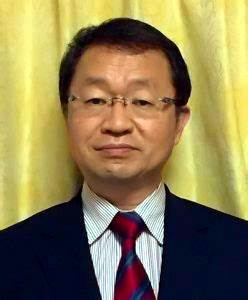

题目:Blue Flame Combustion with Diesel Injection System — Modulating Spray Liquid Length and Flame Lift-Off
时间:2024年3月14日 14:15-16:00
地点:j9九游会官方网页版 A701会议室
邀请人:许敏 教授(智能汽车研究所)
Biography
 Dr. Keiya NISHIDA received his B.S. in Mechanical Engineering in 1978, M.S. in Engineering of Transportation Phenomena in 1980, and Ph.D. in 1989, all from the University of Hiroshima, Japan. From 1980 to 1982, he was a research and development engineer in the internal combustion engine department of Kubota Ltd, Osaka, Japan. He joined the University of Hiroshima as a research associate in 1982 and has been involved in experimental and computational studies on fuel spray and combustion in internal combustion engines. He became an associate professor in 1990 and a professor in 2011. He spent one year from 1995 to 1996 at the Department of Mechanical Engineering and Applied Mechanics, University of Michigan, USA, as a visiting scholar.
Dr. Keiya NISHIDA received his B.S. in Mechanical Engineering in 1978, M.S. in Engineering of Transportation Phenomena in 1980, and Ph.D. in 1989, all from the University of Hiroshima, Japan. From 1980 to 1982, he was a research and development engineer in the internal combustion engine department of Kubota Ltd, Osaka, Japan. He joined the University of Hiroshima as a research associate in 1982 and has been involved in experimental and computational studies on fuel spray and combustion in internal combustion engines. He became an associate professor in 1990 and a professor in 2011. He spent one year from 1995 to 1996 at the Department of Mechanical Engineering and Applied Mechanics, University of Michigan, USA, as a visiting scholar.
Dr. NISHIDA retired from the University of Hiroshima in 2023 and is currently a professor emeritus and a guest professor of the University of Hiroshima for supervising the university team of the student formula car activity and for advising the university - Mazda motor corporation joint research. He holds more than 190 journal papers, 130 international conference papers, 6 review articles, and 3 books. He got awards such as the prize for the best paper in the field of Diesel engines presented at the 20th CIMAC Congress in 1993, etc. He became a guest research professor at Shanghai Jiao Tong University and Dalian University of Technology in China in 2023.
Abstract
The latest design of a Diesel engine combustion system adopts very high injection pressure (200MPa or higher) and very small nozzle hole diameter (0.1mm or smaller) to reduce the soot emission, since the exhaust gas recirculation (EGR) is mandatory to decrease NOx through EGR causes the soot formation. To clarify the reason why such an injection condition reduces the soot formation in the spray flame, the spray and flame experiments were conducted using the constant volume chamber with optical access, the high-speed video camera, and the spray/combustion diagnostics. Measurement was made of Liquid Length (LL), the length of the liquid phase from the nozzle hole exit, of the evaporating spray, and Lift-Off-Length (LOL), the length from the nozzle hole exit to the ignition location of the spray flame. Increasing the injection pressure and decreasing the nozzle hole diameter avoid the interference between LL and LOL, inhibit the soot formation, and create a blue flame.
